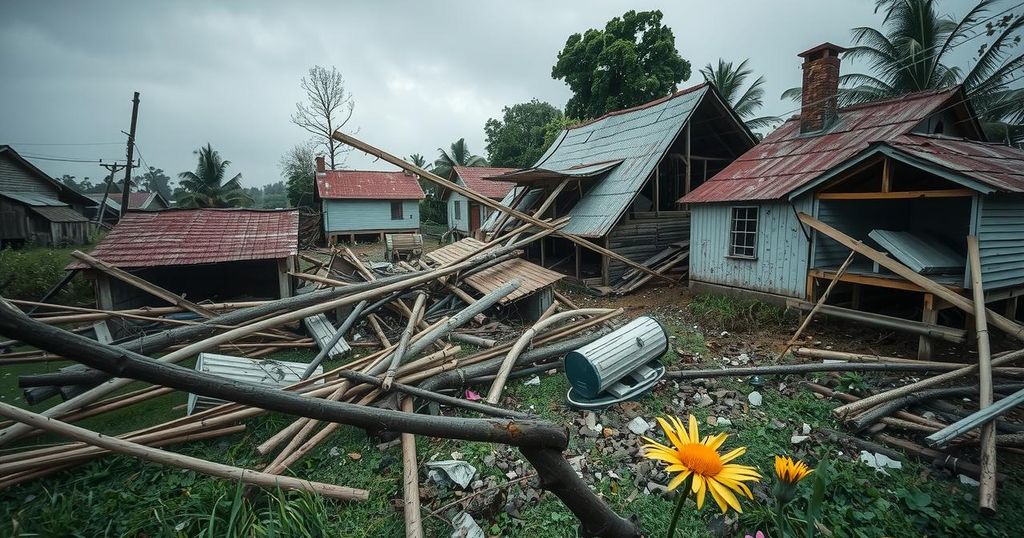Devastating Cyclone Hits Mozambique: Bishop Reports Extensive Damage and Urgent Needs

A cyclone in Mozambique has devastated 380 homes, affecting over 2,155 people, causing one death and 18 injuries. Infrastructure, including health facilities and schools, has been significantly damaged. Bishop Vera reports extensive destruction and emphasizes the urgency of rebuilding efforts following such natural disasters.
The devastating cyclone in Mozambique has severely impacted 2,155 people from 380 families, resulting in one death and 18 injuries. The storm’s force has completely destroyed 380 homes and partially damaged 28, leaving many families homeless.
The cyclone’s effects extended beyond residential areas, causing extensive damage to infrastructure. Twenty-four health facilities have sustained damage, jeopardizing access to essential medical services. Additionally, 27 schools have been damaged, affecting the education of 2,266 students and the work of 158 teachers.
Bishop Vera described the cyclone’s impact as a “night of terror” that left numerous chapels, schools, and pastoral centers without roofs. He reported that about half of the mud houses in 10 districts of the Diocese of Nacala were impaired, emphasizing the severe conditions created by winds of 100 to 150 kilometers per hour and heavy rainfall.
The cyclone has notably disrupted communication channels, damaging several bridges. The Diocese of Nacala is particularly vulnerable to cyclones during this season, having already experienced similar devastation when Cyclone Dikeledi struck in January, prompting the bishop to initiate an emergency response plan for rebuilding essential community structures.
The impact of the recent cyclone in Mozambique has been catastrophic, with significant loss of homes, damage to healthcare services, and disruption of education for thousands of students. The statements from Bishop Vera highlight the urgency for aid and reconstruction efforts to restore essential infrastructure and support affected families. Continued vigilance and support are crucial for this region prone to cyclones.
Original Source: www.aciafrica.org







